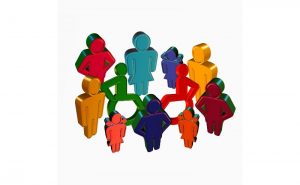Planting the Seeds of Mindfulness
I previously wrote on this blog about how my work as a fundraiser has truly changed my perspective, in a positive way, on my own reality and also that of others. This magical mix of philanthropic goodness has created for me unexpected learning opportunities about human nature and human behaviour. Observing the incredible growth of my community in the South Georgian Bay area where I live and work, I have witnessed the benefit of the beautiful mosaic that is our changing population base. The growing diversity of our community has created an opportunity to build a better reflection of that community within the organization where I work. As the needs of our community continue to grow, so too do the needs of the organizations that provide support.
My current role at our local hospice has led me to another eye-opening opportunity recently. I am most fortunate to be a 2018-19 Fellow with the AFP Foundation for Philanthropy – Canada and, through this program, have been learning about and researching the need for better diversity and inclusion. With my new-found perspective and acceptance of my own disability, I am by definition represented in a minority group when it comes to discussions around diversity and inclusion. There is a new found resonance for me personally when I hear the many stories from around the world and in our own backyard. They are difficult to hear – the stories of racism, sexism, ageism, profiling, exclusion, etc. – but this is all the more reason for these uncomfortable discussions as they show the importance of, and need for, diversity and inclusion.
A concept I have been learning about is the existence of “blindspots;” a term defined by Banaji and Greenwald in “Blindspot: Hidden Biases of Good People” that refers to the “hidden biases we all carry from a lifetime of exposure to cultural attitudes about age, gender, race, ethnicity, religion, social class, sexuality, disability status and nationality [that] are capable of guiding our behavior (sic) without our being aware of their role”[1] . I see the need to recognize how these blindspots affect my daily behaviour and my dealings with others.
As an example, I grew up in Thunder Bay, Ontario. Chances are that you have heard news reports about the extremely grave situation concerning relations between Thunder Bay Police and the First Nations citizens of the city and area. These are not new challenges for my hometown. Growing up in that community has left me with beautiful memories but also equally difficult ones around racial tensions and the lack of cultural knowledge and understanding. This exposure has left its mark on me. Has this experience created blindspots for me? On a conscious level, I consider myself a person who is culturally-aware and non-judgemental and I approach my everyday life as such, but how can witnessing these stories NOT have an effect? They live somewhere in my unconscious and as such are likely creating unintended biases. I am learning that the more self-aware I am of these unintended biases, the more conscious I can be in my consideration of others and their perspectives.
Another recent news report you may be familiar with concerns the arrest of two African American men at a Starbucks in Philadelphia on the charge of trespassing despite having done nothing but ask to use the bathroom. After this incident, Starbucks mandated unconscious bias training for each of their 175,000 employees. Will one training session “fix” this? Of course not, and none of the experts would claim that it will. However, the hope is that continued training and the opportunity to create better self-awareness about unintended and unconscious biases will give employees the tools to “begin ‘planting the seeds of mindfulness’ so people begin to recognize their biases. It’s not intentional — that’s the key,” Leslie Culver [an expert on critical race theory at California Western School of Law] said. “It’s not malicious. That’s where group members would be like, ‘I’m not racist!’ But that’s not what it’s about.” [2]
It’s not malicious. It is unintended and unconscious. So how do we combat bias?
1 (Banaji, 2013, p. xii)
2 (Siegel, 2018)
Plant the seeds of mindfulness. A tool we should all be so lucky to receive, be willing to accept and most importantly choose to utilize.
Janet Fairbridge is a Certified Fund Raising Executive and an Inclusion and Philanthropy Fellow with the AFP Foundation for Philanthropy – Canada.







